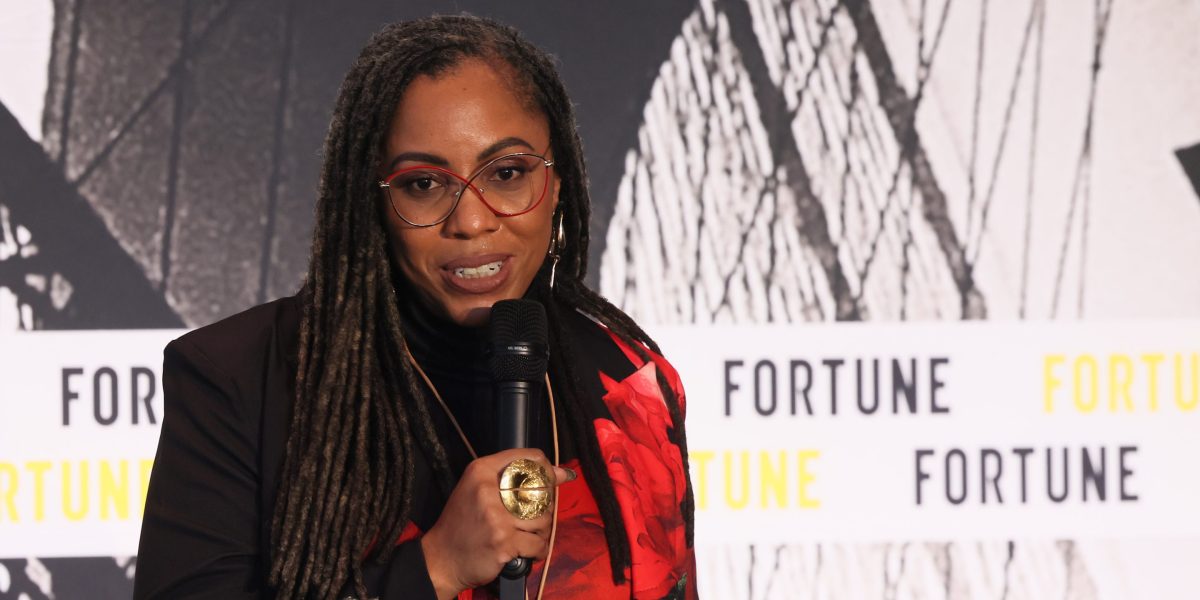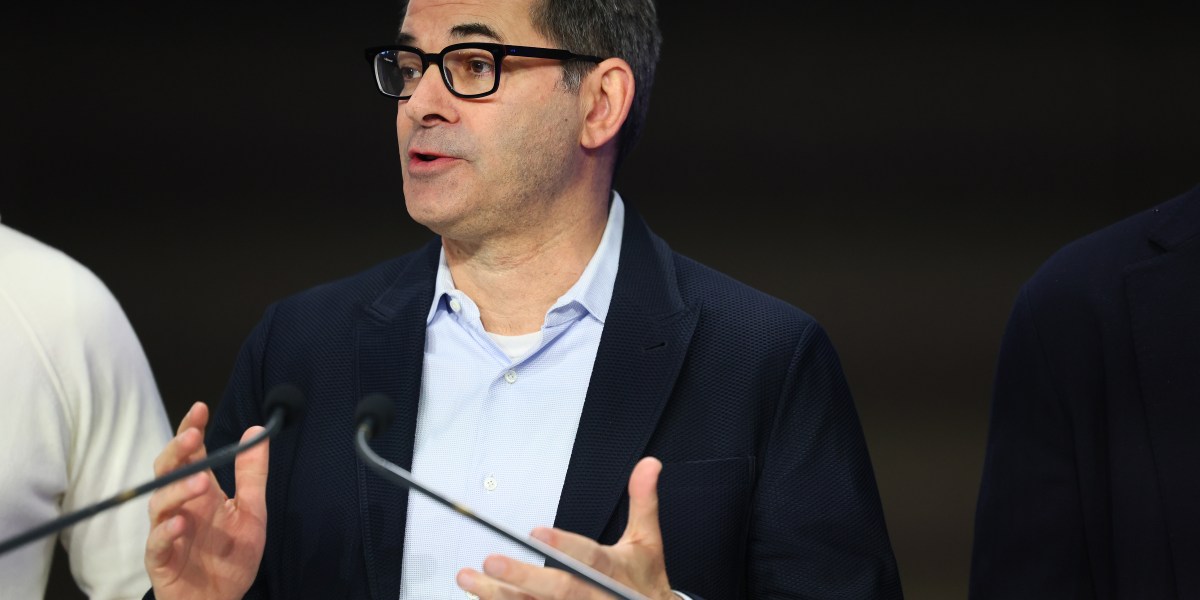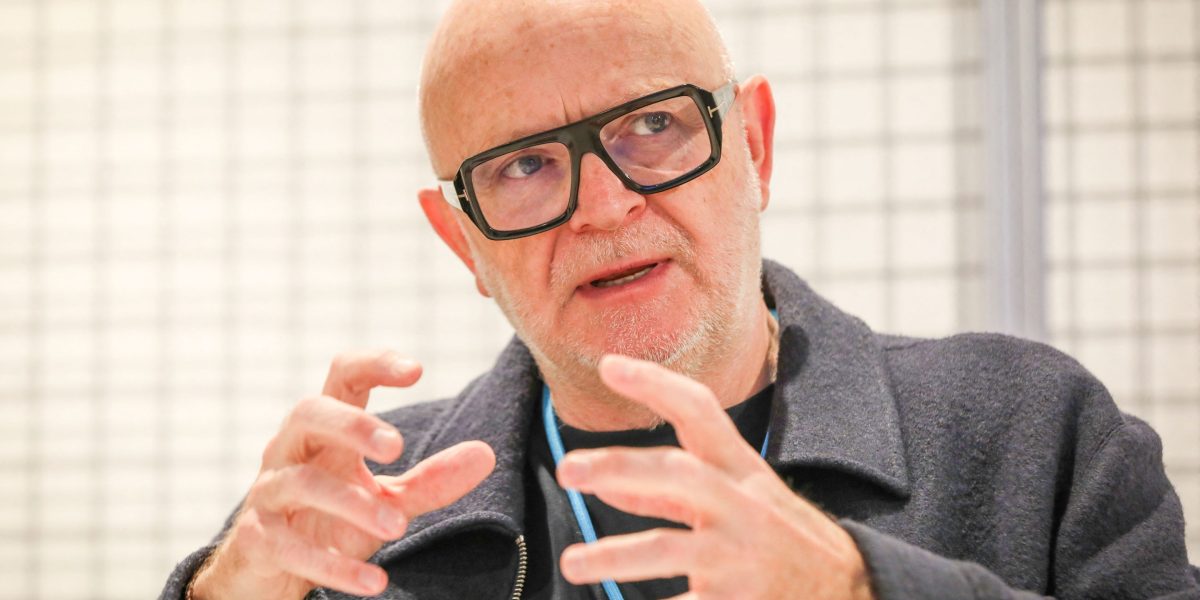When LaFawn Davis was growing up, she didn’t dream of becoming an astronaut, a doctor, or a teacher…she dreamed of becoming the CEO of seven companies, at once.
This ambition inspired a strong work ethic, one that propelled Davis into the workforce at 14, when she took her first job at a Black-owned flower shop in her hometown of San Jose, California. And once she started working, she never stopped.
Despite her strong work ethic, Davis—who landed her current job as Indeed’s chief people and sustainability officer in May 2024—told HR Brew that her career hasn’t always been smooth, in part because she didn’t have a bachelor’s degree.
“I was told that because I didn’t have a college degree, there were certain roles I couldn’t go for. I was a believer that, regardless of what the job description says, if I felt like I could do it, I would go for it anyway,” Davis told HR Brew.
But she isn’t the only HR pro without a bachelor’s degree. Just 31% of people pros in the US have achieved that level of education, according to an HR Brew/Harris Poll survey conducted in September. Some 12% have an associate’s degree, while 30% have a high school diploma and 8% have less. Meanwhile, 18% have a graduate degree.
Davis shared with HR Brew how she climbed the corporate ladder without a four-year college degree.
Career journey. After graduating high school, Davis enrolled at San José State University. But she said she found herself skipping classes to go to work and decided to drop out and join corporate America. She worked in operational roles at startups during the dotcom era, but when that bubble burst in 2000, she lost her job. And without a bachelor’s degree, Davis said she was turned away from new opportunities.
So at 22, with a newborn to care for, she made the difficult decision to move home with her parents. But she was still determined to rejoin the corporate workforce and fulfill her childhood dream of becoming an executive.
During those post-dotcom years, Davis said she leaned heavily on her network of corporate contacts, who helped her find work as a claims adjustor, executive assistant, and chief of staff. Each role taught her a new admin or people skill. Then, in 2005, she got her big break—she was hired as a program specialist at Google, where she would work for eight years, ending her tenure as its HR business partner for diversity and inclusion.
“I really focus[ed] on a lot of HR programs and initiatives and how diversity, equity, inclusion can be woven throughout the whole process of the employee life cycle,” she said. “I really loved it, and I thought I found what my career path was going to be, as opposed to a job. I felt like I was actually embarking upon a career.”
After Google, Davis said she played a game of “tech company roulette,” moving between employee experience and DEI roles at firms including Yahoo!, eBay, and Paypal. In 2019, nearly 15 years into her HR career, she landed at Indeed as a VP of diversity, inclusion, and belonging.
Skills-first is the future. Davis said she was lucky to have had so many opportunities to break into corporate America without a bachelor’s degree, and wishes the skills-based hiring her employers practiced were more common.
“The skills-first movement is not anti-college degree at all…It is more that a college degree is just not the only route to gaining skills, and helping both people and companies understand what it means to hire for skills,” she said.
Davis said she used to be “ashamed” that she didn’t have a four-year college degree. Nowadays, she enjoys sharing her story, and uses it to inform her work at Indeed, where she strives to make the application process easier for candidates by encouraging companies to adopt a skills-first approach.
“One of the things that I said when I came into Indeed was, ‘We need to drink our own champagne…Whatever we’re going to ask other companies to do, we need to do it ourselves,” she said, adding that Indeed dropped college-degree requirements from its corporate job postings in 2022, and calls itself a fair chance employer.
“I won’t be the CEO of seven consecutive companies at the same time,” she said, but “becoming part of the C-suite, knowing along the journey that I don’t have a college degree, has been a great space of inspiration for others to know they could do the same.”
This report was written by Mikaela Cohen and was originally published by HR Brew.
This story was originally featured on Fortune.com
Source link


 Entertainment8 years ago
Entertainment8 years ago
 Politics8 years ago
Politics8 years ago
 Entertainment8 years ago
Entertainment8 years ago
 Entertainment8 years ago
Entertainment8 years ago
 Tech8 years ago
Tech8 years ago
 Tech8 years ago
Tech8 years ago
 Tech8 years ago
Tech8 years ago
 Politics8 years ago
Politics8 years ago






